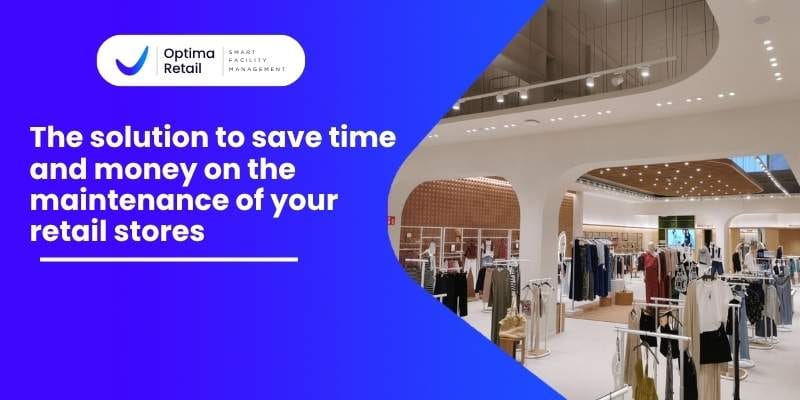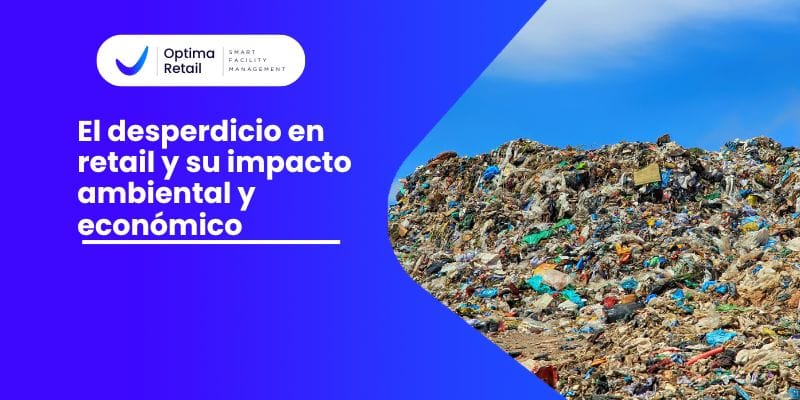
In the retail sector, facility management of facilities encompasses a variety of responsibilities that are critical to ensuring that the stores operate in an efficient and secure manner safely and in accordance with legal regulations.
One of the biggest challenges for managers of operations is to ensure that stores comply with all applicable regulations in the different countries where a19> in the countries where the brand sells its products. In this article we explain the minimum mandatory maintenance requirements in Spain for PCI, HVAC, and low voltage.
If you are looking to outsource your store maintenance services, at Optima Retail we offer all types of maintenance services, including corrective and preventive maintenance, with 24/7 support. a16> corrective and preventive maintenance services, with 24/7 service 365 days a year, and with an average resolution time of 3 hours.
Regulations for low voltage
Depending on the voltage assigned to one or more low-voltage electrical installations, they are classified accordingly.

The usual use of nominal voltages in alternating distributions is 230V (volts) in networks three-phase, that is to say of three conductors.
230V between phase and neutral conductor, and 400V for three-phase four-conductor networks, i.e. networks with a neutral conductor and three additional phases.
Networks also have an established frequency of use.
This must be of 50 Hz and only may a5> may be modified with prior authorisation from the public body, when the need is justified and it is demonstrated that the modifications will not affect the safety of the public body. a17> demonstrated that the modifications will not affect the surrounding facilities.
Keeping the electrical system in good condition and ensuring that both frequency and voltage remain within the appropriate parameters is not only mandatory, it is also very important for the safety and integrity of your shop, employees, and customers.
Electrical maintenance is carried out on recommendation once a year, and it is mandatory for an OCA (Authorised Control Body) to inspect the electrical system once every three years.
During our annual certified electrical maintenance visit, the main objective is to guarantee the safety, efficiency, and reliability of the electrical system in the facilities:
Certified inspection of the electrical panel
- Certified energy consumption analysis.
- Certified lighting assessment.
- Certified energy quality analysis.
- Certified evaluation of controls and automation.
- Certified review of the energy management programme.
- Certified inspection and cleaning of the electrical panel.
- Certified inspection of electrical panel wiring, including identification of circuits and internal lines.+
- Certified inspection of the heating of the equipment of the electrical panel.
- Certified measurement of voltage in the Switch of Control of Power (ICP).
Certified review of the Force Circuit
- Certified verification of the existence of voltage in power outlets.
- Certified verification of the correct condition of the grounding network.
- Certified visual inspection of the condition of electrical mechanisms.
- Certified verification of wiring in electrified equipment.
- Certified low voltage inspection.
Please note that any modifications to the installation must be certified by a qualified technician or company. However, with the exception of the electrical OCA, the rest of the modifications or revisions to the system are not mandatory, so you can request non-mandatory services without certification if you have a tighter budget. At Optima Retail, we offer and recommend using certified electrical and low voltage inspection services in all cases.
Fire prevention regulations
Fire prevention legislation covers the maintenance of both passive and active prevention systems:
| SISTEMA | FREQUENCY |
| Fire detection and alarm systems. Detectors and manual alarm activation. | Anual |
| Firefighting water supply systems. | Anual |
| Fire extinguishers | Annual and Every 5 years |
| Fire hoses equipped (BIE) | Annual and Every 5 years |
| Fire hydrants | Annual and Every 5 years |
| Dry column systems | Every 5 years |
| Fixed fire extinguishing systems: Automatic water sprinklers. Water spray. Water mist. Physical foam. Powder. Gaseous extinguishing agents. Condensed aerosols. | Annual and Every 5 years |
| Smoke and heat control system. | Anual |
Our recommendation for maintaining the fire prevention system is to schedule an annual visit to check the following points:
Comprehensive Fire Extinguisher Inspection
- Management of regulatory inspection of fire extinguishers.
- Checking accessibility, signage and apparent good condition.
- Visual inspection of safety devices, seals, markings, and other equipment components.
- Checking the weight and pressure of the equipment.
- Visual inspection of the external condition of mechanical parts such as nozzles, valves, hoses, and other equipment components.
- Check the condition of the extinguishing agent, weight, and appearance.
Fire Detection and Alarm System Review
- Verification of the operability of smoke detectors, heat detectors, and other devices.
- Inspection of the fire alarm system and verification of its proper functioning.
- Assessment of the effectiveness of signage and evacuation systems.
Inspection of sprinkler systems and fire hydrants (BIE)
- Visual inspection of sprinklers and fire hydrants.
- Functional tests to ensure adequate water dispersion in case of emergency.
Review of Automatic Fire Extinguishing Systems (Sprinklers)
- Inspection of the operation of sprinklers and valves.
- Review of the expiry dates of sprinklers and valves.
Maintenance HVAC mandatory by law
Air conditioning maintenance shall include the maintenance operations necessary to comply with current regulations on Thermal Installations in Buildings and their Complementary Technical Instructions, as well as mandatory UNE standards.
The following tables show which systems require minimum maintenance by law. If your shop has them, please do not hesitate to contact us.
Heating systems
| SISTEMA | FREQUENCY |
| Air conditioning Pn ≤ 12 kW. | 1 every 2 years |
| Air conditioning 12 kW < Rp ≤ 70 kW. | Anual |
| Gas-fired domestic hot water heaters 24.4 kW < Pn ≤ 70 kW. | Anual |
| Wall-mounted gas boilers Pn ≤ 70 kW. | Anual |
| Other heating installations Pn ≥70 kW. | Anual |
| Heat pump for domestic hot water Pn ≤ 12 kW. | 1 every 2 years |
| Heat pump for domestic hot water 12 kW < Pn ≤ 70 kW. | Anual |
| Solar thermal installations Pn≤14 kW. | Anual |
| Solar thermal installations Pn>14 kW. | Every 6 months |
| Installations with power exceeding 70 kW. | Mensual |
Many supermarket chains and even some shops have refrigeration equipment.
Si este es tu caso y tus tiendas cuentan con este tipo de sistemas, la frequencia de mantenimiento obligatoria es de cuatro veces al año si los equipos son de 70kW < P≤1.000kW y una visita mensual en el caso de que sean de P>1.000kW.
To ensure that your HVAC systems are working properly and will pass their certified inspection without any problems, at Optima Retail we recommend carrying out three to four visits per year to check the following:
- Start-up
- Noise testing
- Air temperature check
- Inspection of grilles, filters and air ducts
- Cleaning the return and supply grilles of the installation
- Change of filters. Material not included
- Review of electrical consumption (compressor, fans, batteries, power)
- Verification of control elements (thermostats, pressure switches, valves)
- Verification of flow switches (checking the opening and closing of the water outlet with the pipe)
- Cleaning the drain and condensation tray
- Checking fan pulleys and belts, lubricating and greasing bearings (depending on the machine installation, access may or may not be possible)
- Inspection and repair of leaks in refrigeration circuits, visual inspection to check for oil.
- Inspection of anti-vibration mounts (silent blocks and anchors)
- Inspection of the internal thermal insulation of the equipment
- Checking manhole covers and doors
- Inspection system electrical and automation
- Checking safety elements (pressure switches, motor guards, cut-off switches, etc.)
- Winter/summer operation check
- Check the automatic control (timer or thermostat)
- Verification operation alarms (reset of thermostat and check possible errors after changing of filters)
- Atomizers. (Check the level of perfume in the bottle if there is any.)
- Visual inspection of the fastening of panels
- Checking the mixing box, gates and regulation
At Optima Retail, we specialise in store maintenance worldwide.
We have extensive knowledge of the retail industry, understanding perfectly its schedules, interaction with the centres, the procedures, their legal responsibilities and the specific needs of the store.


